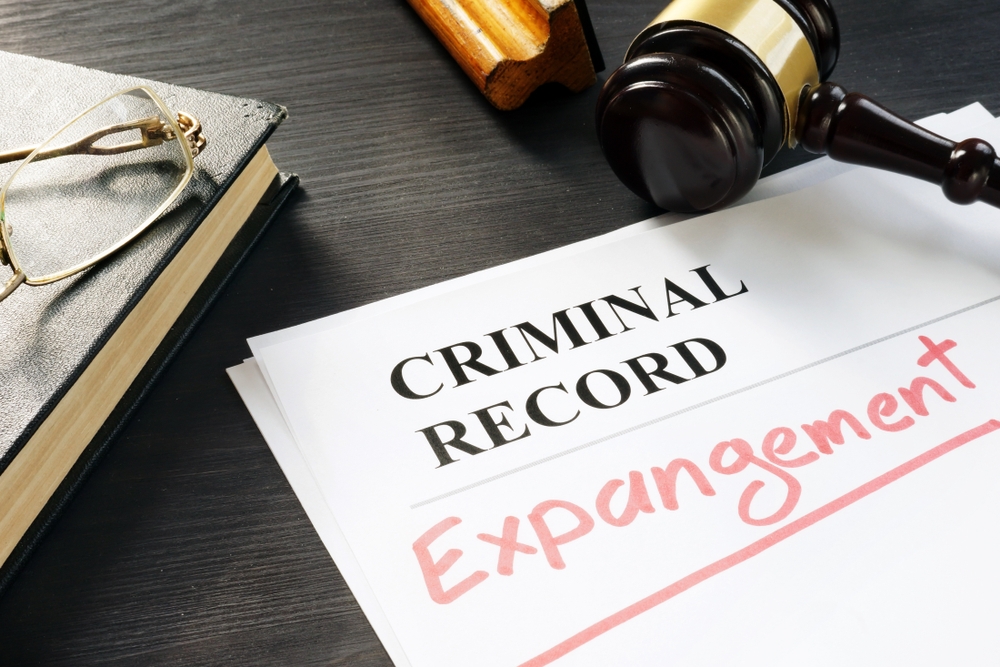
Gov. Wes Moore has signed a bill into law that creates more opportunities for Marylanders to clear their records of criminal convictions and arrests. The Expungement Reform Act of 2025 allows people who could not remove criminal records from public view because of problems they experienced while on probation to seek expungement. The new law also adds other crimes to the list of offenses that can be expunged.
The Act is a rejection of a 2022 appeals court decision. The state’s mid-level appeals court ruled that people who violated their probation, even for minor reasons, could not receive an expungement.
That court ruling was widely held as holding back thousands of people from moving on with their lives. In 2022, 43% of people did not successfully complete the terms of their supervision.
The measure had the Governor’s backing as it wound its way through the legislature. Moore reportedly said that not every criminal sentence needs to be a life sentence. In 2019, nearly a quarter (about 22%) of Maryland adults had some form of criminal record.
New Crimes Eligible for Expungement
In addition to probation violation now qualifying for expungement, the law also added several transgressions to the list of crimes eligible for expungement. These include:
- Driving without a license
- Credit card theft
- Writing bad checks
The changes take effect on Oct. 1.
Cannabis Crimes Will Disappear from Case Search
Starting January 31, 2026, the Maryland Judiciary Case Search, an online database, will no longer show pardoned cannabis-related convictions. In 2024, Gov. Moore pardoned more than 175,000 cannabis convictions.
Expungement Advantages
Expungement removes a case from court and law enforcement records. The process starts with a petition for expungement. Courts grant expungement at their discretion. Prosecutors have 30 days after filing to object with valid cause. The process typically takes 120 days after filing to complete.
In fiscal year 2024, 44,673 petitions for expungement were filed in District Court, and 9,396 petitions were filed in Circuit Court.
Arrest and conviction records are widely available these days via the Internet and visits to the courthouse. But they pose significant barriers to employment, housing and education for those with criminal records. Removing the information from public view can help to eliminate those barriers.
However, expunged records may still appear in private or federal background checks. An expungement lawyer can provide more details.
Reduced Waiting Periods for Criminal Record Expungements
This latest legal move builds upon state and national efforts toward more criminal expungement. In 2023, Maryland lawmakers approved the “REDEEM Act of 2023.” The law shortened the waiting periods before certain criminal convictions could be expunged.
Before the Redeem Act came into being, misdemeanor convictions could only be expunged 10 years after completion of a sentence. Felonies required a 15-year waiting period. The REDEEM Act slashed those timespans so that nonviolent misdemeanors can be expunged after five years and nonviolent felonies after seven years. Earlier expungements are a possibility in instances where bias based on a criminal record in obtaining employment, housing or getting into college can be shown.
An Attorney Can Help You with Expungement
Expungement can significantly improve your chances of securing jobs, housing, and educational opportunities. If you have a criminal record, an expungement lawyer can help. A Maryland expungement attorney can advise you on waiting periods and whether you meet the qualifying criteria for expungement. The attorneys at Maronick Law LLC have experience with Annapolis, Baltimore, Bel Air, Glen Burnie, Essex, Ocean City, Towson, White Marsh expungement matters.
Maronick Law LLC can meet with you remotely if you have access to Zoom. You can contact the law office at 410-244-5068 or via the website for a free consultation.
Disclaimer: This blog is intended for informational purposes only and does not establish an attorney-client relationship. It should not be considered as legal advice. For personalized legal assistance, please consult our team directly.
